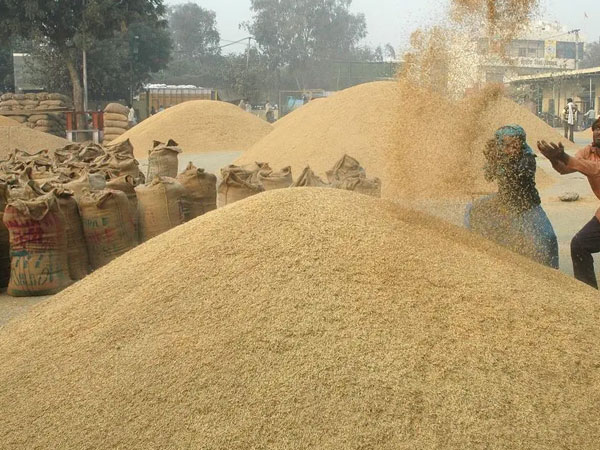 Solvent Extractors’ Association expects the country to regain its position in export market
Solvent Extractors’ Association expects the country to regain its position in export market
India on Friday lifted the ban on the export of de-oiled rice bran. The ban has been in force from July 2023.
A notification by the Directorate General of Foreign Trade (DGFT) dated October 3, 2025, said rice bran export is now allowed freely without restrictions. The DGFT changed the export policy of de-oiled rice bran from ‘Prohibited’ to ‘Free’ with immediate effect.
Thanking the Government, Sanjeev Asthana, President of the Solvent Extractors’ Association of India (SEA), said, “SEA sincerely appreciates the proactive intervention of the Government in addressing this long-pending demand of the industry.” SEA has been pursuing this for a long time, and an SEA delegation had met Central ministers to discuss the same.
Boost to agro-processing
B V Mehta, Executive Director of SEA, said the Government’s decision to lift the ban on de-oiled rice bran will help boost India’s agro-processing exports and strengthen the country’s reputation as a reliable supplier to global feed markets.
The move is expected to benefit the rice milling and solvent extraction industry, particularly in Eastern India, with opening up of export opportunities, while also aiding farmers and processors in securing better realisation for byproducts of rice bran. This will also boost rice bran processing leading to higher production of rice bran oil, an import substitution, he said.
“We will try our level best and be back to our business of ₹1,000 crore annually,” Mehta said.
Reasons for ban
The Indian Government had imposed a ban on the export of de-oiled rice bran in a notification dated July 28, 2023. Rising prices of milk and milk products due to high fodder prices were cited as reasons for the export restrictions then. De-oiled rice bran is a major component in the fodder.
Disagreeing with this notion, SEA had stated then that cattle feed would experience only a marginal decrease in cost even if the price of de-oiled rice bran was reduced by 10 per cent. The impact on milk prices would consequently be minimal, likely not exceeding a 1 per cent reduction, it had stated then.
In a recent letter to the Government, SEA stated that market demand for all commodities went up sharply after Covid ended in the latter half of 2022, due to pent-up demand and factors such as logistics, production disruption, etc. Furthermore, pressure on the supply chain resulted in higher prices of all food grains, pulses, metals, chemicals, and all commodities across the chain.
The original objective of the export ban was to control rising feed costs and stabilise milk prices. However, two-and-a-half years down the line, the prices of protein meals declined by 40-50 per cent while the milk prices increased, it said.
The price of de-oiled rice bran, which was ₹20,000 a tonne in July 2023, declined to ₹10,000-11,000 a tonne in July 2025.
Exports before the ban
Prior to the ban in July 2023, India used to export 5-6 lakh tonnes (lt) of de-oiled rice bran, valued at ₹1,000 crore per annum, mainly to Vietnam, Thailand, and other Asian countries. India was positioned as a reliable supplier in the international market.
India had exported 1.51 lt of rice bran extraction valued ₹241 crore in 2023-24 (till July 28, 2023). However, the total exports of rice bran extraction stood at 5.95 lt in 2022-23 (valued ₹950 crore), and at 7.49 lt (valued ₹984 crore) in 2021-22.
Eastern states, including West Bengal, are significant producers of rice bran extraction. According to SEA, cattle feed industry remained underdeveloped in the region, and there was limited demand for rice bran extraction in Eastern India. The local freight charges to move rice bran extraction from Eastern India to South or West India made exports the principal means of disposal for rice bran extraction in the region, it said.














© Copyright 2025 The SSResource Media.
All rights reserved.